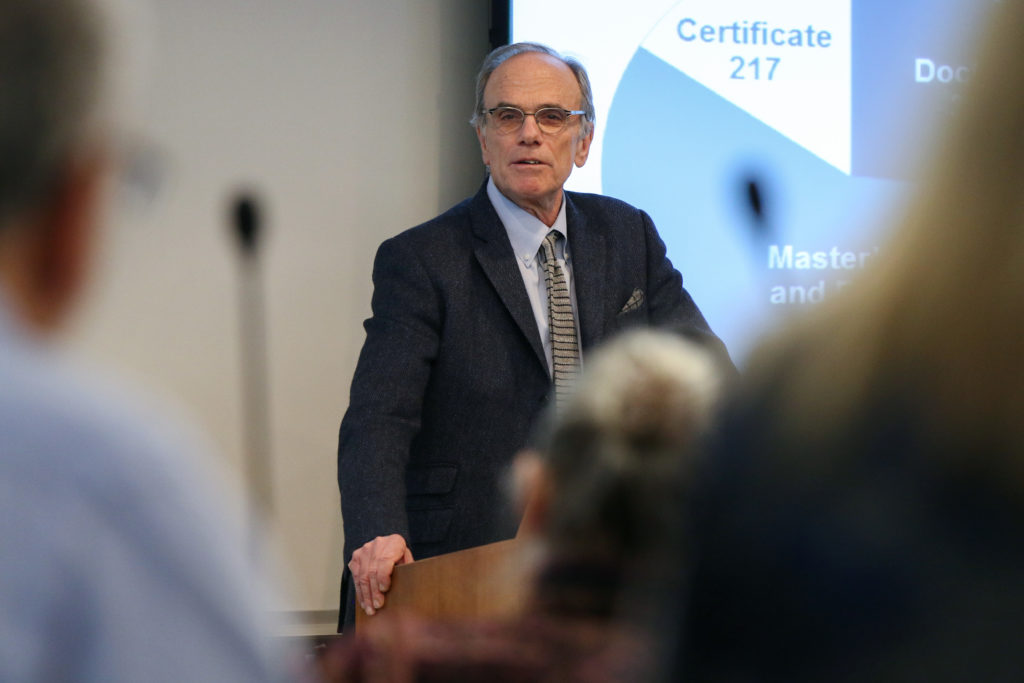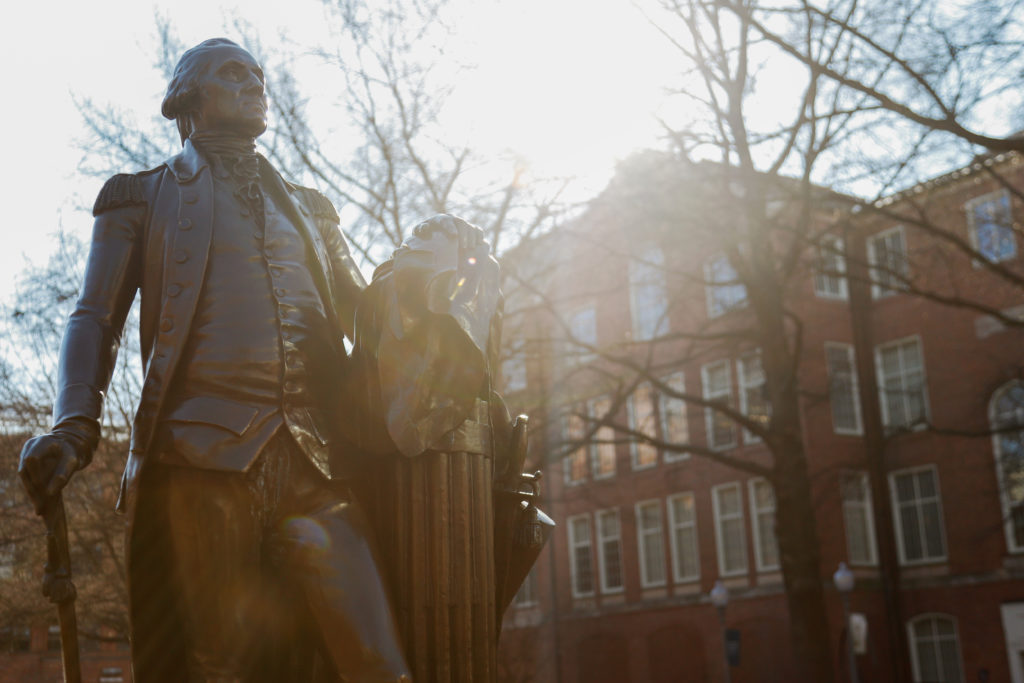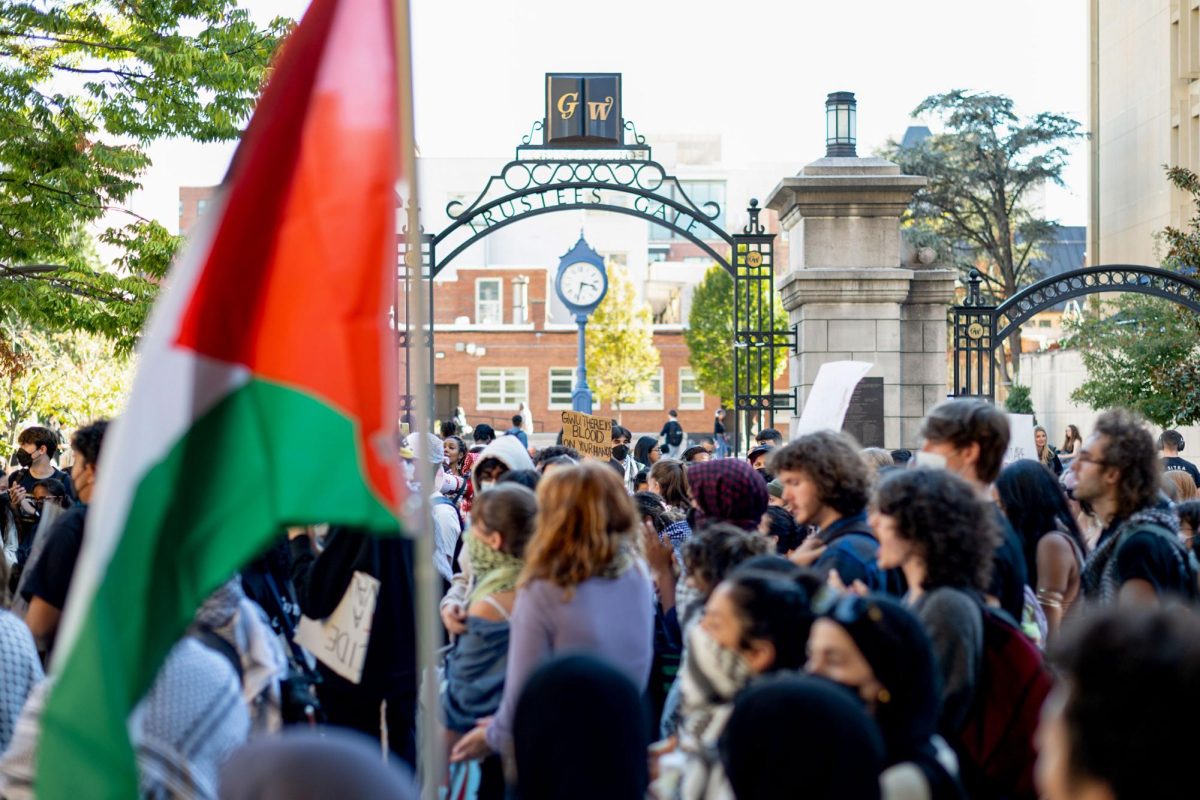The GW student groups drew people to an event focusing on the plight of those held in bondage in Sudan with the question Own A Slave? plastered on posters across campus.
Hundreds of thousands of non-Islamic people in the African nation have been captured, tortured and sold into slavery by Islamic nationalists, said panelists in a discussion held Wednesday in the Hall of Government. The event was sponsored by GW’s chapter of the National Association for the Advancement of Colored People and the Organization of African Students.
It is an issue that threatens the very existence of Sudan, said Charles Jacobs, president of the American Anti-Slavery Group, who spoke on the panel. He said the slave trade is a large-scale operation scaled by the very government which is (supposed) to serve the interests of the people.
Other panelists included John Eibner, president of the Christian Solidarity Initiative, civil rights leader Norman Hill, government minister and scholar Abdun Nihal, chairman of the Sudan Human Rights Organization Bona Malwal and General Secretary of the SHRO Hamouda Fathelrahman.
Eibner shared with students his organization’s efforts to liberate slaves by purchasing them from slave traders and allowing them to return to their homes.
We are blazing a new freedom trail, said Eibner, who said the CSI has redeemed more than 15,000 slaves by venturing into Sudan illegally. There is danger every step of the way, including the threat of arrest or attack by guerrilla forces, he said.
Nihal and Malwal told the frightful tale of the method in which slaves are abducted. During pogrom-like slave raids, tribal men are killed and women and children are taken and often subjected to physical and sexual assault.
It is a weapon of war by the present government (of Sudan), Nihal said. It has brought against the (Sudanese) regime the kind of attention that it would have loved to avoid.
Malwal, along with Hill, said intervention by the African-American community is important.
African Americans could have done more if we did not have the politics of black Islams in black communities.but black Muslim leaders in African-American communities should take a stand, he said. Blood is thicker than water.
The panel said American awareness of the situation is something activists should target. Hill said the efforts should be a systematic campaign similar to the one fighting apartheid, including showing film documentation of the Sudanese, signing petitions to release slaves and vigils outside Sudan’s embassy.
The most important thing is to pass the word around, Nihal said. There is no bigger, tougher force than students.
Erika Emeruwa, president of the GW NAACP, said her chapter is taking donations for its Freedom Fund, which will support the American Anti-Slavery Group. She urged students to take action to help end slavery in the world.
If people don’t know about it, you can’t ask them to mobilize, Emeruwa said. People being motivated and astonished is result enough that these types of forums need to be on this campus.






